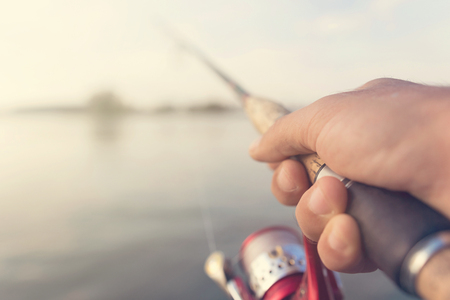1. The Historical Backbone of UK Rod Licences
For generations, rod licences have formed an intrinsic part of the UK’s angling heritage, weaving together a tapestry of tradition, regulation, and countryside leisure. These permits are far more than just paperwork—they symbolise a commitment to sustainable fishing practices and the stewardship of Britain’s waterways. Since their introduction in the late 19th century, rod licences have enabled local communities to manage fish stocks responsibly and fund conservation initiatives that protect riverine habitats. Across England, Scotland, and Wales, the annual ritual of acquiring a rod licence is seen by many as a rite of passage: a signal that the angler is both respecting long-held customs and playing their part in preserving the landscape for future generations. Whether you’re casting for wild brown trout in a misty Cotswolds stream or enjoying a leisurely afternoon by one of Yorkshire’s famed coarse fishing ponds, the presence of a rod licence is a gentle reminder of the shared history between British anglers and the countryside they cherish.
2. Current Policy and Routine Practice
When it comes to fishing in the UK, rod licences are a staple of angling culture and law. Today, if you fancy casting your line in England, Wales or the Border Esk region in Scotland, you’ll need to secure a valid rod licence from the Environment Agency. This requirement applies whether you’re after coarse fish or game species like trout and salmon. The system is designed not only to regulate who’s fishing, but also to help fund conservation efforts and maintain healthy waterways for future generations.
Official Requirements for Rod Licences
| Type of Fishing | Licence Required? | Minimum Age | Where to Buy |
|---|---|---|---|
| Coarse Fish & Trout | Yes | 13+ | Post Office, Online (Gov.uk) |
| Salmon & Sea Trout | Yes (Separate Licence) | 13+ | Post Office, Online (Gov.uk) |
| Under 13s | No Licence Needed | N/A | N/A |
The British approach to these regulations is generally practical and community-minded. Most anglers see the rod licence as both a legal must-have and a way of giving back. Regular checks are conducted by Environment Agency bailiffs, who are known for their friendly yet firm manner—think more “gentle reminder” than “heavy-handed enforcer”. That said, penalties for fishing without a licence can be stiff, with fines up to £2,500. The typical day out fishing often starts with a quick nod to local rules posted at riverbanks or lakesides, ensuring everyone is playing fair.
The British Way: Regulation with a Local Touch
The UK prides itself on balancing national standards with local wisdom. Clubs and fisheries may add their own rules—often stricter than national requirements—to preserve stocks and maintain cherished traditions. For many, securing a rod licence is simply part of the pre-fishing ritual: as essential as packing your thermos or picking your favourite swim.

3. Impending Changes on the Horizon
As we look towards the future of UK rod licences, a wave of modernisation and legislative reform is gathering pace. Policymakers have recently unveiled proposals aimed at bringing the rod licensing system into line with contemporary expectations and technological advancements. One of the most talked-about changes is the digitalisation of licences, which would see traditional paper permits replaced with convenient electronic versions. This shift not only promises greater efficiency for anglers but also reflects broader trends in government services across the UK.
Alongside these digital upgrades, there’s a spirited debate about revising the cost structure associated with rod licences. Current discussions among officials suggest that adjustments may be made to better reflect usage patterns and the funding needs of fisheries management. The idea is to ensure fairness while securing sustainable investment in angling infrastructure, conservation projects, and enforcement efforts. Some policymakers are even considering flexible payment options, such as monthly subscriptions or discounted rates for younger or less frequent anglers.
The motivation behind these impending changes isn’t just administrative convenience; it’s also about making angling more accessible and appealing to a wider demographic. By embracing technology and rethinking how fees are collected and allocated, authorities hope to foster a more inclusive and sustainable angling community. As these proposals move through consultation stages, keen observers and passionate anglers alike are watching closely—eager to see how these modernisation efforts will shape their future experiences along the UK’s rivers and lakes.
4. The Debate: Conservation, Economy, and Accessibility
As conversations about the future of UK rod licences gather pace, three key stakeholders emerge at the heart of the debate: local anglers, environmental groups, and government officials. Each brings a unique perspective on accessibility, conservation funding, and inclusivity in angling—a pastime deeply woven into British leisure culture.
Local Anglers: Accessibility vs. Tradition
For many seasoned anglers and grassroots fishing clubs, the rod licence is seen both as a rite of passage and a barrier. While it upholds tradition and helps regulate access to Britain’s picturesque rivers and lakes, there’s growing concern that rising fees or complicated rules could discourage new participants—particularly young people or those from less affluent backgrounds. The angling community often stresses the importance of keeping fishing accessible to all, championing initiatives such as junior licences or community days where no permit is required.
Environmental Groups: Funding Conservation
On the other hand, conservation organisations argue that rod licence fees are essential for maintaining healthy fisheries. These funds support habitat restoration, fish stocking programmes, and anti-poaching patrols across the UK. There’s apprehension that any reduction in licence revenues—whether from fee cuts or exemptions—could jeopardise critical conservation projects. Some advocate for a more transparent breakdown of how funds are allocated, ensuring every pound makes a tangible difference to Britain’s aquatic ecosystems.
Government Officials: Striking a Balance
The government sits between these viewpoints, tasked with balancing economic sustainability against social inclusion and environmental stewardship. Recent policy proposals have ranged from digitalising licences for greater convenience to offering tiered pricing models based on age or frequency of use. Officials often highlight the need to modernise administration while ensuring that rural economies, reliant on visiting anglers for tourism revenue, continue to thrive.
Key Concerns Among Stakeholders
| Stakeholder | Main Concern | Suggested Solution |
|---|---|---|
| Local Anglers | Accessibility & cost | Junior/discounted licences; free angling days |
| Environmental Groups | Conservation funding | Ring-fenced budgets; transparency reports |
| Government Officials | Sustainable policy & revenue | Digitalisation; flexible pricing structures |
Towards a More Inclusive Future?
The ongoing debate reflects broader questions about who gets to enjoy Britain’s natural resources and under what conditions. As policymakers consider reforms, striking a balance between inclusivity, economic needs, and environmental protection remains central to shaping the next chapter in UK angling—and by extension, its treasured countryside leisure traditions.
5. Grassroots Voices and Regional Perspectives
When considering the future of rod licences in the UK, it’s crucial to listen closely to those who live and breathe beside the rivers. Riverside communities from the serene brooks of Northumberland to the winding banks of the River Wye bring a wealth of local knowledge and sentiment to the debate. Many feel that rod licence changes could either invigorate or hinder their cherished way of life, depending on how policy unfolds.
The Pulse of Angling Clubs
Angling clubs, from bustling city associations in Manchester to small-town collectives in rural Wales, are at the heart of grassroots angling culture. These groups not only offer practical advice but also represent a wide spectrum of views: some see proposed reforms as an opportunity for greater inclusivity and easier access for young anglers, while others worry about potential barriers for seasoned members who have fished these waters for decades.
Regional Diversity in Attitudes
Across England, there’s often a call for modernisation—digital licensing and flexible options are hot topics. In Scotland, with its unique legal framework around fishing rights, local authorities and angling federations emphasise respect for tradition and regional autonomy. Wales stands out for its focus on conservation; here, many believe that any changes to rod licences should directly support river habitat restoration. Meanwhile, Northern Ireland presents a more cautious stance, with community leaders advocating thorough consultation before any major policy shift.
The Value of Local Input
No matter which part of the UK you find yourself in, one thing is clear: grassroots voices want a seat at the table. There’s a widespread belief that regional perspectives must inform any national approach to rod licence reform. From the local tackle shop owner to volunteer bailiffs patrolling riverbanks, everyone has a story—and a stake—in shaping what comes next for angling across Britain.
6. Looking Forward: The Future of Rod Angling in the UK
As the debate over rod licences continues to stir interest among anglers, policymakers, and countryside enthusiasts alike, looking ahead reveals a landscape ripe with both challenges and opportunities. The changes on the horizon—whether they pertain to digitalisation, fee restructuring, or broader inclusivity measures—are poised to shape not only the practicalities of fishing but also the very fabric of British angling culture.
Anticipating New Scenarios
One possible future scenario involves a fully digital rod licensing system, streamlining access for tech-savvy anglers while potentially presenting hurdles for those less comfortable with online processes. There is ongoing discussion about how this shift could make angling more appealing to younger generations, bringing fresh energy into rural communities and helping sustain traditional waterways as cherished recreational spaces.
Cultural Impacts on British Angling
The way upcoming policies are implemented will undoubtedly influence how people interact with the countryside. If reforms make angling more accessible and affordable, we may witness a renaissance in riverside gatherings, club meets, and family days out—hallmarks of the British leisure tradition. Conversely, if changes are seen as restrictive or cumbersome, there could be a decline in participation, impacting not only local economies but also the conservation efforts that depend on responsible angling.
Balancing Heritage and Modernisation
Looking forward, the challenge for policymakers is to strike a balance between preserving time-honoured practices and embracing necessary innovation. The future of rod licences—and indeed British angling itself—will depend on careful consultation with stakeholders, respect for environmental priorities, and an unwavering commitment to keeping the joys of fishing open to all. As these changes unfold, one thing remains certain: the banks of Britain’s rivers will continue to serve as a vital crossroads where heritage meets modern recreation.


